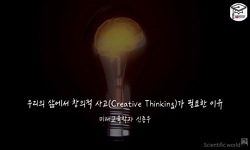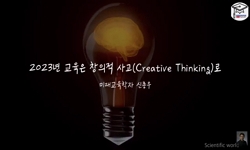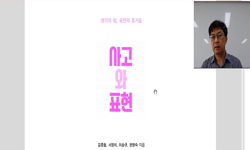As the scientific understanding of learning and cognitive processes has developed, various alternative methods in education have been searched for. But classroom teachers experience pressure and confusion for the improvement of teaching and learning m...
http://chineseinput.net/에서 pinyin(병음)방식으로 중국어를 변환할 수 있습니다.
변환된 중국어를 복사하여 사용하시면 됩니다.
- 中文 을 입력하시려면 zhongwen을 입력하시고 space를누르시면됩니다.
- 北京 을 입력하시려면 beijing을 입력하시고 space를 누르시면 됩니다.
https://www.riss.kr/link?id=A105217229
- 저자
- 발행기관
- 학술지명
- 권호사항
-
발행연도
2018
-
작성언어
-
-
주제어
교육방법 ; 흥미 ; 체험 ; 사고 ; 존 듀이 ; 『민주주의와 교육』 ; methods in education ; interest ; experience ; thinking ; John Dewey ; Democracy and Education
-
KDC
370
-
등재정보
KCI등재
-
자료형태
학술저널
- 발행기관 URL
-
수록면
87-114(28쪽)
- DOI식별코드
- 제공처
- 소장기관
-
0
상세조회 -
0
다운로드
부가정보
다국어 초록 (Multilingual Abstract)
As the scientific understanding of learning and cognitive processes has developed, various alternative methods in education have been searched for. But classroom teachers experience pressure and confusion for the improvement of teaching and learning methods. It appears that the problem has become serious since the philosophical concerns are confined to the purpose and ideal conception of education in distinction from the problem of methods for classroom practices. The philosophical approach is needed in a way as to communicate with existing scientific approaches to the problem of methods in education. This paper explores Dewey’s philosophical ideas on the nature of method in education with a view to providing a new insight for the current problematic situation, given his pervasive efforts to integrate the dualistic oppositions between philosophy and reality, means and ends, theory and practice. To begin with, I examine the ancient etymological meaning of method and Dewey’s conceptual discussion about it, which illuminates the characteristic limitations of the current technical approach in light of the original active procedural meaning of method. The major inquiry is focused on Dewey s constructive end critical thoughts on interest, experience, and thinking as mehtods in education, which shows that unlike ordinary uses, each of three concepts does not oppose to mental discipline, subject knowledge, and free activity. In conclusion, Dewey s critical insight into the problem of educational methods is to dismantle and reconstruct the distorted meanings due to the undemocratic social life situations and also to the dualistic ideas of modern philosophy.
동일학술지(권/호) 다른 논문
-
- 한국교육사상학회 (구 한국교육사상연구회)
- 서명석(Seo Myoung Seok)
- 2018
- KCI등재
-
『조선왕조실록(朝鮮王朝實)』에 나타난 한국 통육아의 실제 고찰
- 한국교육사상연구회
- 안세희(Ahn Sae hee)
- 2018
- KCI등재
-
조선시대 양반가의 한글교육의 양상 - ‘진주하씨묘 출토 언간’을 중심으로-
- 한국교육사상연구회
- 윤재흥(Yun Jae Heung)
- 2018
- KCI등재
-
- 한국교육사상학회 (구 한국교육사상연구회)
- 이윤미(Yoon mi Lee)
- 2018
- KCI등재





 KCI
KCI 스콜라
스콜라







